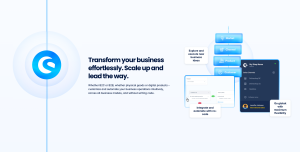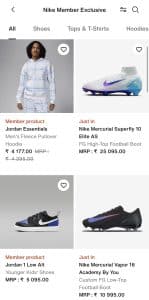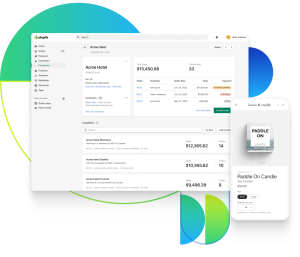
In this digital era, we’ve moved beyond the traditional brick-and-mortar stores. We’ve now got a bottle of merlot at our fingertips, just a click away. Whether you’re running an established winery or an eCommerce start-up, knowing how to sell more wine online is the secret ingredient to filling more glasses, and consequently, your bank account.
Let’s take you on a whirlwind tour through the vineyards of online sales.
Picking the Right Platform
When it comes to selling wine online, your platform is your virtual vineyard. It’s where the magic happens.
Picking an eCommerce Platform
To turn your online wine store into a buzzing marketplace, you need an eCommerce platform that does the heavy lifting. Here are some considerations:
- User-friendly Interface: Your online storefront should be easy to navigate. A confusing layout can turn potential customers sour.
- Payment and Shipping Options: Variety is the spice of life, and the same goes for payment and shipping options. Don’t leave your customers high and dry; give them a choice.
- Mobile Optimization: In our on-the-go society, your customers will appreciate being able to browse and buy from their smartphones.
Utilizing Social Media Platforms
Never underestimate the power of a well-crafted Instagram post or a catchy tweet. Social media can be an effective tool to sell more wine online. Share engaging content, interact with your audience, and harness the power of influencer marketing.
Understanding Your Customers
Remember the old saying, “Know thy customer”? It’s not just hot air. Understanding your customers can do wonders for your online wine sales.
Identifying Customer Preferences
Is your customer a fan of full-bodied reds, or are they partial to a light and fruity white? Identify their preferences and tailor your marketing efforts accordingly.
Building Customer Relationships
Create a sense of community among your customers. Host virtual wine tastings or run a blog featuring wine pairings. Customers appreciate a personal touch.
SEO and Content Marketing
SEO and content marketing can be the sommelier that guides your customers to their perfect wine.
Leveraging SEO
To sell more wine online, you need to be visible. Use relevant keywords and meta-descriptions to increase your search engine ranking.
Content is King
High-quality, engaging content can keep your customers coming back for more. Run a blog, share recipes, or post informative articles about different types of wine.
Legal Considerations
Legal considerations can make or break your online wine business. Missteps can land you in a pickle, stalling your operations, and hurting your reputation. That’s why it’s critical to understand the legal landscape that governs the sale of wine online. Let’s uncork some details about shipping laws, age restrictions, and necessary permits.
Digital Tools for Navigating Shipping Laws
Navigating through the maze of shipping laws can feel overwhelming. Thankfully, we live in a digital age where solutions like ShipperHQ can lend a hand.
ShipperHQ is an advanced eCommerce platform that simplifies shipping for online retailers, including those in the wine industry. With features like carrier rules and restrictions, address validation, and multi-origin shipping, it’s a handy tool for streamlining your shipping process.
Here’s how it can help:
- Carrier Rules and Restrictions: With ShipperHQ, you can define rules based on destination, product, and cart quantity. If you’re shipping wine, for example, you can set up rules to restrict shipments to locations where direct-to-consumer wine shipping is prohibited.
- Address Validation: Nothing puts a damper on customer experience quite like an undelivered or returned shipment. ShipperHQ’s address validation ensures that your wine reaches the correct address, saving you from unnecessary costs and customer dissatisfaction.
- Multi-Origin Shipping: If you’re shipping from multiple locations, managing logistics can be a headache. ShipperHQ takes the pain out of the process by automatically calculating the most efficient shipping method.
Using a tool like ShipperHQ can ease the burden of complying with shipping laws and enhance the overall efficiency of your online wine business.
Necessary Permits
Selling wine online is not as simple as setting up a website and listing your products. Most countries require permits and licenses to sell alcohol, both in-store and online. For instance, in the U.S., you’d need a Federal Basic Permit from the Alcohol and Tobacco Tax and Trade Bureau (TTB) and possibly a Direct Wine Shipper’s License, depending on the state laws.
Acquiring permits can be a lengthy and sometimes complicated process, so it’s best to start early. Also, remember that permits may come with specific requirements that you must comply with, such as regular reporting and payment of taxes.
Remember, while these legal considerations may seem daunting, they are necessary steps on the path to running a successful online wine business. By familiarizing yourself with shipping laws, understanding age restrictions, and acquiring the necessary permits, you are setting your business up for success. And don’t forget, when in doubt, it’s always best to consult with a legal professional. Cheers to legally compliant wine selling!
Complying with International Regulations
As if domestic laws weren’t enough, if you’re planning to sell your wine internationally, you’ll need to wrap your head around foreign regulations too. International laws vary widely when it comes to selling and shipping wine.
Countries have different rules regarding labeling, alcohol content, and even bottle sizes. For example, in the European Union, wine labels must include specific details like protected geographical indication, actual alcoholic strength, and allergen information. Compliance with such rules is essential to avoid any potential legal issues and ensure smooth sailing of your wine across borders.
Data Protection and Privacy
As an online retailer, you’re likely to handle a significant amount of customer data, including sensitive information such as addresses and payment details. Hence, it’s crucial to ensure your business is compliant with data protection and privacy laws. These laws can vary by region, such as the General Data Protection Regulation (GDPR) in the European Union and the California Consumer Privacy Act (CCPA) in California, U.S.
In addition to these, several jurisdictions require online retailers to have specific policies and notices in place, like a privacy policy and a cookies policy. Ensuring your website complies with these requirements is not just a good business practice; it’s also a legal necessity.
Navigating legal waters can be tricky, but with the right knowledge and resources, you’ll stay afloat. By paying careful attention to shipping laws, age restrictions, permits, international regulations, and data privacy, you’re setting your online wine business up for smooth sailing. When in doubt, seeking professional legal advice can be a valuable investment. With all the legal boxes ticked, you’re ready to pour your energy into what you love most: sharing your passion for wine with the world. Here’s to successfully selling more wine online, legally and efficiently!
Age Restrictions
“Old enough to order, old enough to drink” might seem like a simple rule of thumb, but enforcing it online can be a tall order. In most jurisdictions, selling wine to minors is illegal, and the penalties can be severe, including hefty fines and loss of licenses.
To safeguard against underage sales, consider implementing age verification measures on your website. For example, a pop-up requiring the visitor to confirm they are of legal drinking age can act as the first line of defense. For further security, some online wine retailers ask for a valid ID at the point of delivery to ensure the recipient is of legal drinking age.
Understanding and adhering to age restrictions is not just about staying on the right side of the law. It’s also about promoting responsible drinking habits among your customers. So, don’t let the complexities of age restrictions spook you. With a bit of tech-savviness and a robust verification process, you can ensure your wines are being enjoyed by those legally allowed to do so.
FAQs
- Why is picking the right platform crucial for selling wine online?
Selecting the right platform can significantly influence user experience and impact your sales. A user-friendly, mobile-optimized platform with a variety of payment and shipping options can enhance your customer’s shopping experience. - How can social media help sell more wine online?
Social media is a powerful tool for increasing brand visibility, engaging with customers, and promoting your products. - What role does understanding customer preferences play in online wine sales?
Understanding customer preferences helps you tailor your products and marketing efforts to meet your customer’s needs, resulting in increased sales. - How can SEO and content marketing improve online wine sales?
SEO increases your visibility on search engines, driving more traffic to your website. Content marketing engages your audience and encourages repeat visits. - What are some legal considerations when selling wine online?
It’s important to understand shipping laws, age restrictions, and required permits to legally and successfully sell wine online.
By now, you’ve got a better grasp on how to sell more wine online. The journey to successful online wine sales is a complex cocktail of strategic planning, technical prowess, and customer understanding. But remember, while the tips and tricks above can boost your sales, there’s no one-size-fits-all approach. Tailor your strategy to your business needs, and watch as your sales go through the roof. Now, that’s something to raise a glass to! Cheers!




